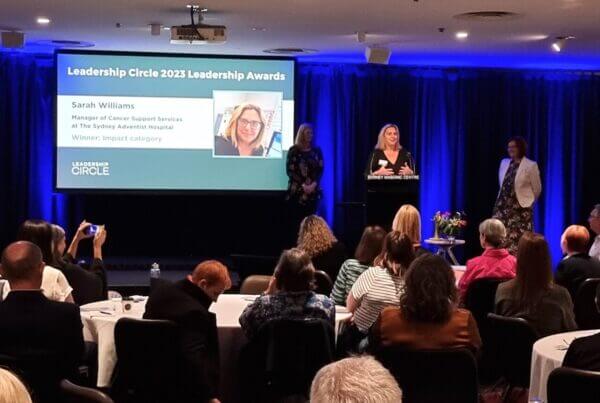Becoming a successful executive coach requires more than just passion. Quality education, practical experience, cutting-edge coaching tools, and a strategy for acquiring your first clients are all part of the equation. This step-by-step guide will cover the most crucial aspects required to fast-track your journey to become a top-performing executive coach.
Step 1: Inform Yourself
What Is Executive Coaching?
Executive coaching is a discipline of coaching that specializes in the professional development of leaders within an organization. Executive coaches work with a range of clients, including individuals, executive leaders, C-suite members, and even entire teams. An executive coach may be hired by an individual looking to improve their leadership acumen or by a company looking to invest in the growth of high-potential employees. Through tailored guidance, executive coaches empower both established and emerging leaders to refine the skills needed to succeed in their current positions or to assume greater roles or responsibilities.
What Does an Executive Coach Do?
Overall, the role of an executive coach is to serve as a trusted advisor and sounding board, helping leaders reach their full potential, navigate complex organizational dynamics, and become more effective in their roles. Though day-to-day tasks may vary, the ultimate goal is to support the client’s professional growth and contribute to the success of the organization.
This happens through a series of one-on-one coaching sessions over a period of time, the duration of which will vary depending on the specific needs of the client. The journey begins with clear goal setting, where both coach and client define what success looks like in terms of the desired coaching result. From there, the executive coach will assess the client to establish a baseline and identify opportunities for growth and improvement. Many executive coaches enlist the help of coaching assessment tools such as the Leadership Circle Profile™, in order to assist in this phase.
Once coach and client have established a baseline and a goal, the executive coach will structure their sessions in such a way as to help the client develop the skills they need to bridge the gap between where they are and where they want to be.
Some of the skills an executive coach may help their clients strengthen include:
- Communication
- Conflict resolution
- Decision-making
- Team building
- Resilience
- Emotional regulation
- Developing strategic vision
Successful coaching engagements are rooted in a coach’s ability to provide a safe and nurturing environment where meaningful conversations can take place. Coupled with a client’s commitment and engagement, this creates an environment where positive, transformational change can happen. When these components align, executive coaching accelerates both personal and professional growth, driving business leaders to peak performance.
Executive Coaching vs. Leadership Coaching
The terms “executive coaching” and “leadership coaching” often get used interchangeably. After all, executives are leaders, and leaders are often execs, right? Although these two disciplines of coaching hold many similarities, it’s important for those considering a career in coaching to understand the nuances that differentiate them and distinguish each type.
While both types of coaching aim to improve the leadership skills of the client, executive coaching typically targets top-level leaders and encompasses a broader range of skill development. The scope of the work is larger and often focuses on the progress of the individual within the context of their current role or organization. Leadership coaching, on the other hand, targets a wider audience and is geared toward developing the skills that contribute to more general effective leadership practices.
Recognizing the importance of leadership coaching within executive coaching, many aspiring coaches invest in leadership coach training to add to their repertoire in order to offer a more enriched coaching experience that meets the distinct needs of their executive clients.
Step 2: Gain Education and Experience
Anyone can call themselves an executive coach. Currently, there is no minimum standard or set qualification for making that claim. That makes it even more important that you distinguish yourself and your practice through study, certification, and experience.
Executive Coaching Training
Determining the best route to obtain executive coach training largely depends on your past coaching experience (or lack thereof). Seasoned coaches can transition into executive coaching through continuing education courses or by obtaining advanced certifications that specialize in areas relevant to executive coaching, such as leadership development or team leadership development. Newcomers to coaching should seek out an education path that emphasizes the fundamentals of coaching, in addition to the specialized training that will ensure their success in the executive realm.
Whether you have prior coaching experience or are just beginning, you can follow the training paths outlined below to fast-track your journey to becoming an executive coach.
No Coaching Experience – Choose an Executive Coach Training Program
If you’re new to coaching altogether, you can find a comprehensive, ICF-accredited executive coaching program by using the ICF’s Education Search Service, along with specific filters. Find the “Coaching Specialty” field of the search tool and select “Executive.”
As you research different options, keep in mind that a well-rounded executive coaching training program should include an opportunity to gain hands-on practice through supervised coaching sessions, in addition to the study of leadership principles and theory.
Experienced Coaches – How To Transition Into Executive Coaching
If you already have education and/or experience in the field of coaching (even if it’s not at the executive level), you can still break into the field of executive coaching by leveraging your foundational coaching skills while pursuing specialized training. Leadership Circle’s coach certifications are designed to offer seasoned coaches specialized training in cutting-edge leadership assessment technology. By integrating these tools into your practice, you can effectively identify limiting behaviors and quickly address the areas that need the most work as you help your executive clients reach peak performance, facilitating their growth in the area that arguably matters the most: leadership.
Step 3: Gain Certification
How To Become a Certified Executive Coach
Though certification is not required to become an executive coach, it can help distinguish you in the industry and equip you for a successful career. And, if you select the right program, certification can also earn you CCE (Continuing Coach Education), which is especially useful for ICF coaches, who are required to complete CCE every three years to maintain their credential.
Beyond satisfying renewal requirements, pursuing CCE underscores a coach’s dedication to professional development and helps coaches keep their skills and knowledge base current with the latest strategies, tools, and methodologies.
Leadership Circle offers two types of ICF-Accredited CCE certifications to enhance your executive coaching repertoire and gain a solid foundation in assessing and addressing leadership competencies within your executive coaching clients, depending on whether you’re interested in coaching individuals or teams:
Step 4: Establish a Thriving Coaching Business
Once you’ve gained the education, skills, and certifications to instill confidence in potential clients, the next step is to establish your executive coaching practice.
Starting out, some executive coaches may opt to join a firm in order to ensure a steady client base. Others will branch out on their own. For executive coaches who earn a leadership coaching certification from Leadership Circle, a myriad of resources are available in the form of business development support, marketing materials and templates, and even networking connections with potential clients, providing a substantial advantage to those beginning a career as an executive coach.
Whether you choose to build a personal brand or represent a firm, below are a few guiding principles for establishing yourself as an executive coach and acquiring your first clients.
How To Get Executive Coaching Clients
Boost Your Online Visibility:
In today’s digital era, having an online presence is essential to connect with potential clients far and wide. At a minimum, this should include having a website and maintaining profiles on key platforms that cater to your target demographic, such as LinkedIn. Listing your business on Google is another great way to boost your online visibility and reach potential local clients.
Build Trust:
Coaching is a relationship-based business and demands trust. Building that trust is a multifaceted, long-term endeavor that begins now, in order to secure prospective clients for the future. One effective strategy for building trust is to create an “About” page on your website with a personal bio, giving potential clients the opportunity to learn about your background, qualifications, and personal journey. In so doing, you allow clients to resonate with your story and connect with you online before initiating contact.
Invest in & Highlight Your Expertise:
Display your educational background, professional experience, credentials, and certifications across your digital platforms. Invest in your professional development as an executive coach and keep your skills and certifications current. This will ensure that you remain at the forefront of new research, tools, and methodologies, and provide a tangible testament of your competence and commitment.
Showcase Client Success:
As you complete successful coaching engagements, invite clients to provide testimonials and reviews. Featuring these endorsements can enhance your online reputation and instill confidence in potential clients, giving them a glimpse into the transformation they can expect from working with you.
Ask for Referrals:
Word of mouth is a powerful tool for building a client base. Encourage satisfied clients to refer you to colleagues or friends who might benefit from your service. You can even offer incentives or discounts for each successful referral.
Executive coaches play a pivotal role in the professional development of business leaders. Their ability to identify limiting behaviors, foster self-awareness, and facilitate transformation through meaningful and structured coaching conversations makes them an invaluable asset to any individual or organization committed to reaching peak performance.
BECOME A LEADERSHIP CIRCLE CERTIFIED EXECUTIVE COACH
Whether you’re beginning the process of becoming an executive coach or looking to advance your career through certification, Leadership Circle can help pave the way. Our coach certifications are designed for individuals with a background in one-on-one coaching who understand the importance of cultivating leadership skills in their clients and equip practicing coaches with a statistically validated framework for cultivating effective leadership skills.




